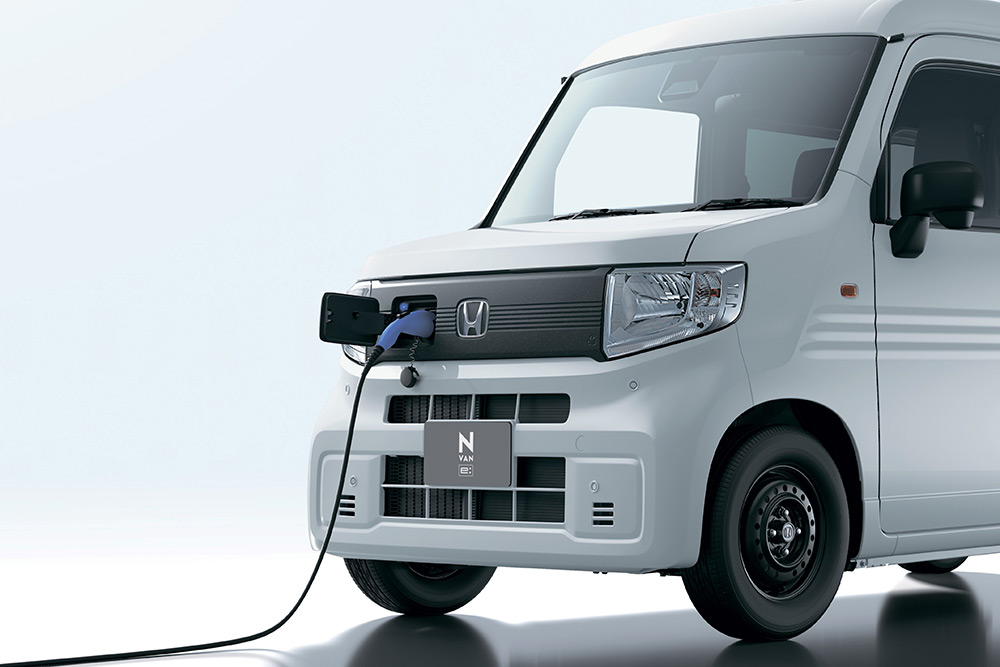Japanese auto giants join for EV iniative
Honda and Mitsubishi to collaborate on new EV leasing deal that promises to lower costs and increase second-life use case of EV batteries as energy storage systems.

Honda and Mitsubishi have announced plans to establish a new 50/50 joint venture company, ALTNA Co. Ltd, focusing on new businesses ventures stemming from growth in the electric vehicle (EV) market.
A statement from the two Japanese car makers said they had established the joint venture “to address challenges toward the societal implementation of EVs and the realisation of decarbonised society”.
ALTNA’s business focus will include optimisation of EV usage cost, enhancement of the lifetime value of EV batteries, and supplying grid storage batteries that will help increase the proportion of renewable energy in the energy mix in Japan.
“By combining Honda control and connected technologies for EVs and batteries and MC (Mitsubishi Corporation) power-generation know-how, which extends to the administration of storage-battery systems and smart-charging operations, ALTNA will strive to offer new mobility services that reduce the total cost of ownership for EV users and create new power-supply operations that enable long-term utilisation of EV batteries,” a statement from the new joint venture said.
A new battery leasing business will be at the heart of the plan, starting with the Honda N-VAN e, a new commercial-use mini-EV scheduled to launch in October 2024.
Under what it terms a closed-end lease, when a vehicle is leased to a customer ALTNA will retain ownership of the battery and monitor battery usage throughout the lease period.

By continuously monitoring the battery conditions, including predictions of future battery deterioration, ALTNA believes it will be able to enhance the reliability of its EV batteries to ensure greater longevity. This includes from the time of new vehicle sales through to the ownership by second and subsequent owners.
After the end of automotive use, batteries will be recovered and utilised for ALTNA’s grid storage battery business.
By designing this repurposed storage battery business into the EV business case upfront, ALTNA believes it will be able to set lower leasing prices, based on the assumption that batteries will be utilised for a long period of time, in both vehicle and stationary applications.
The ALTNA plan promises to offer corporate users end-to-end customer support to address challenges associated with the introduction of EVs, from establishing fleet electrification plans to setting up charging infrastructure and optimising vehicle use.
ALTNA will also conduct an electric power business to repurpose end-of-life EV batteries and manage these as grid storage batteries.
Let us do the work finding your next car
The company believes this will provide the supply-demand adjustment capacities to enable greater grid stability and contribute to widespread utilisation of renewable energy.
ALTNA will also offer EV charging plans that optimise electricity costs for EV users by leveraging advanced energy-control technologies to avoid charging on the grid during peak hours.
ALTNA plans to link its energy control system and customers’ EVs, so that charging will be automatically performed at the time of day when the cost of electricity is lowest.
These charging plans will also contribute to the increased use of green (renewable) energy by charging EVs during times when there is a surplus of renewable energy on the power grid.
There’s no indication at this stage that Honda and Mitsubishi’s ALTNA joint venture will be extended to Australia, but given the fact renewable energy is such a hot-button topic, and with the number of EVs our roads steadily rising, the idea is one that could well work here as well as Japan.
Mitsubishi Australia has separately just announced it has acquired a 5% stake of fleet leasing company FleetPartners Group, which would position the company well for any such initiative.
Related topics
Things to note
The information in this article has been prepared for general information purposes only and is not intended as legal advice or specific advice to any particular person. Any advice contained in the document is general advice, not intended as legal advice or professional advice and does not take into account any person’s particular circumstances. Before acting on anything based on this advice you should consider its appropriateness to you, having regard to your objectives and needs.
Insurance Products (excluding Travel Insurance) are issued by RACQ Insurance Limited ABN 50 009 704 152 (RACQI) and arranged by its agent, RACQ Distribution Services Pty Ltd (RDS) ABN 35 116 361 650, AFSL 567130 and RDS' authorised representatives (including RACQ Operations Pty Ltd ABN 80 009 663 414, AR No. 234978 (RACQO). Conditions, limits and exclusions apply. RDS and RACQO are in the RACQ group of companies. One of the companies in the RACQ group of companies has a minority shareholding in RACQI.
RDS and RACQO have not taken your personal objectives, circumstances or needs into account when preparing advice regarding insurance products and you will need to consider whether the advice is appropriate for you. Read the Product Disclosure Statement (PDS) and any applicable Supplementary PDS before making a purchase decision on this product. You can also access our Target Market Determinations on this website. RDS receives a commission from RACQI for the policies it arranges. RACQO receives fees paid for services it provides to RDS. Further details about remuneration are available on request prior to purchasing.
Banking and loan products issued by Members Banking Group Limited ABN 83 087 651 054 AFSL/Australian credit licence 241195 trading as RACQ Bank. Terms, conditions, fees, charges and lending policies apply. This is general advice only and may not be right for you. This information does not take your personal objectives, circumstances or needs into account. Read the disclosure documents for your selected product or service, including the Financial Services Guide and the Terms and Conditions, and consider if appropriate for you before deciding.
Except for RACQ Bank, any RACQ entity referred to on this page is not an authorised deposit-taking institution for the purposes of the Banking Act 1959 (Cth). That entity’s obligations do not represent deposits or other liabilities of RACQ Bank. RACQ Bank does not guarantee or otherwise provide assurance in respect of the obligations of that entity, unless noted otherwise.
RACQ Bank subscribes to the Customer Owned Banking Code of Practice which establishes higher standards than the law requires. The Code reflects modern consumer expectations and developments in approaches to issues such as consumer vulnerability, guarantors, and supporting customers through financial hardship. Please read our Customer Owned Banking Code of Practice page for more information.
RACQ Operations Pty Ltd (ABN 80 009 663 414 AR 000234978) and Members Travel Group Pty Ltd (ABN 45 144 538 803 AR 000432492) are acting as an Authorised Representative of the issuer of the insurance, Tokio Marine & Nichido Fire Insurance Co., Ltd. (ABN 80 000 438 291 AFSL 246 548). Any advice set out above is general in nature only, and does not take into account your objectives, financial situation or needs. Before purchasing any travel products, please consider the RACQ Travel Insurance Product Disclosure Statement (PDS) and the Target Market Determinations (TMDs) that apply to these products. Whilst the PDS outlines the Terms and Conditions of these products, the TMDs outline the intended class of customers that comprise the target market for these travel products. This will allow you to consider which products best suit your objectives, financial situation and needs and consider the products appropriateness to your personal circumstances. TMDs also outline matters involving the distribution and the review of these products. The PDS, Supplementary PDS and TMDs for each travel product can be found here.

